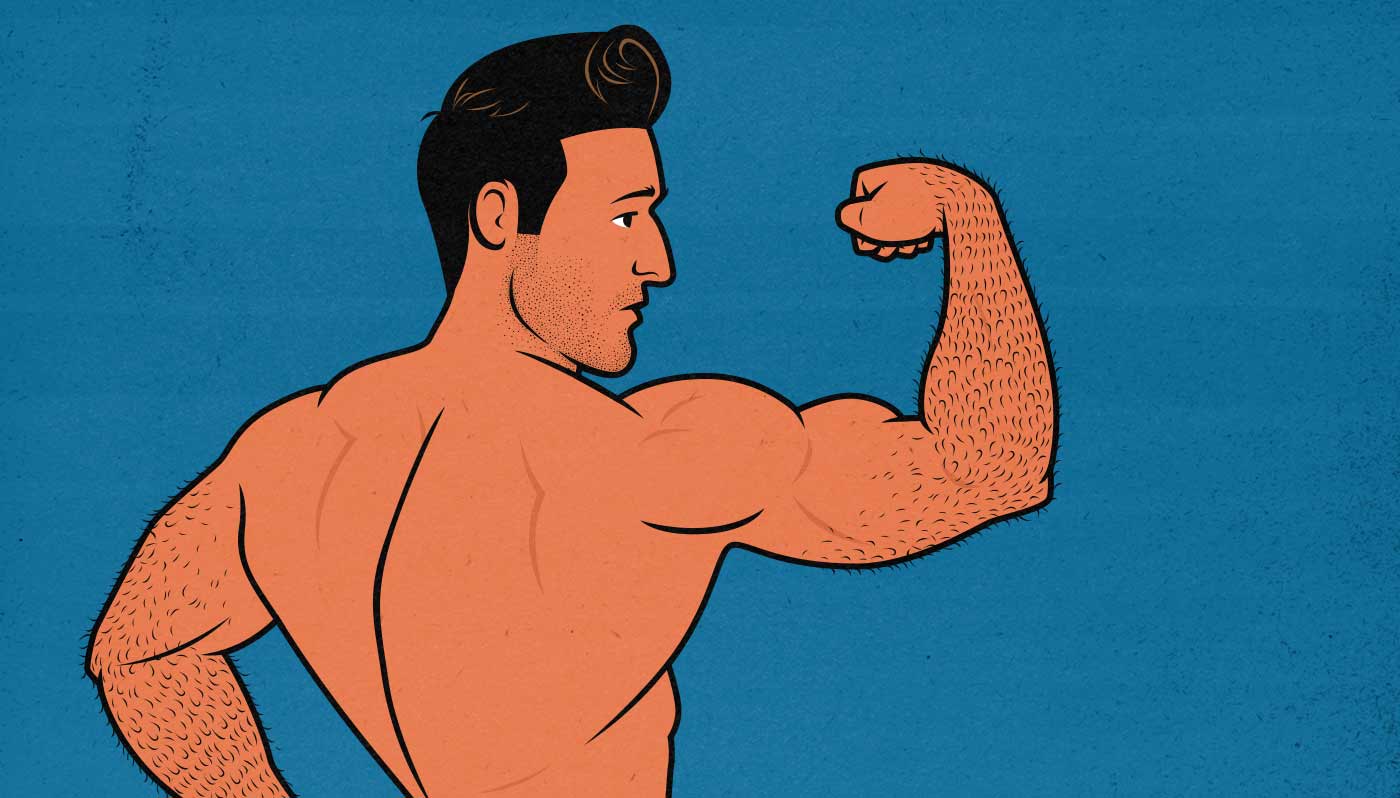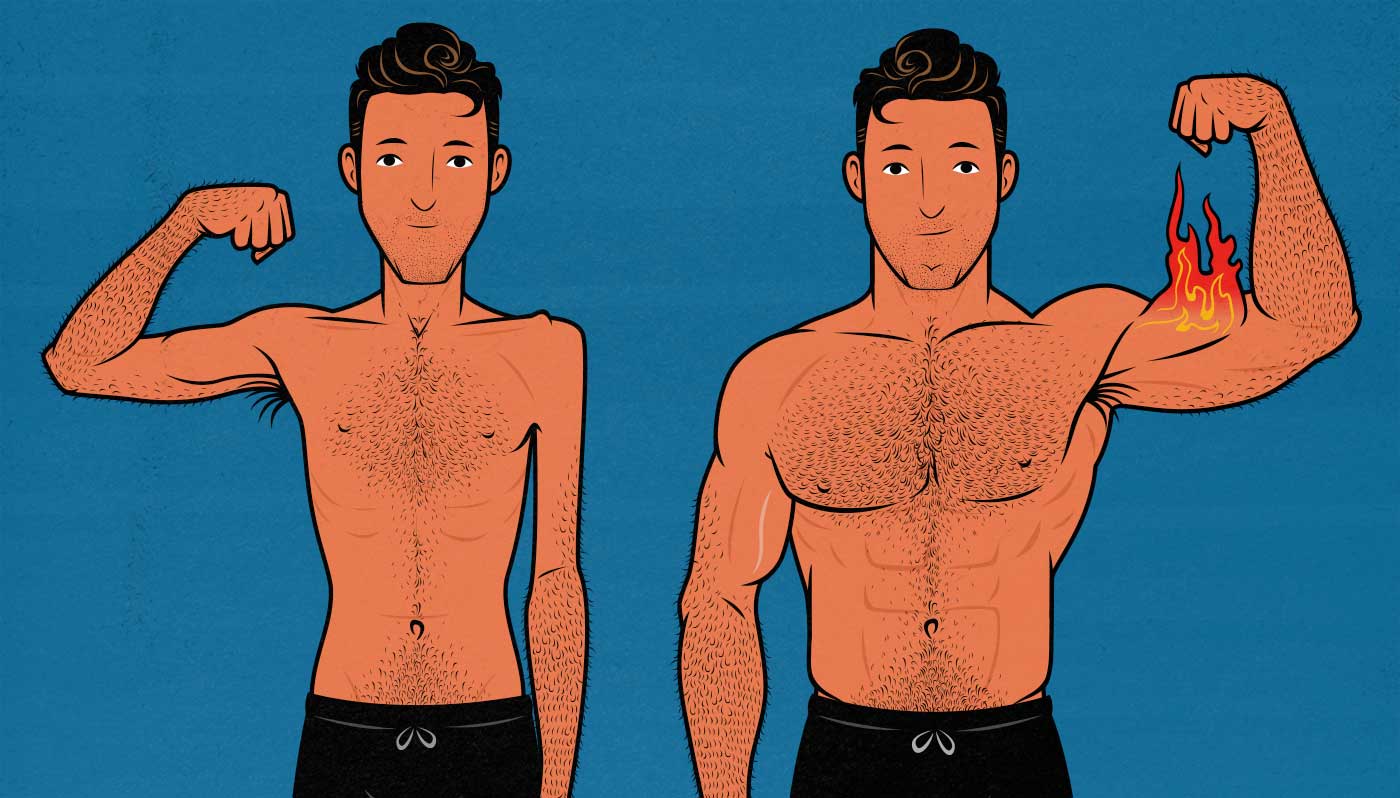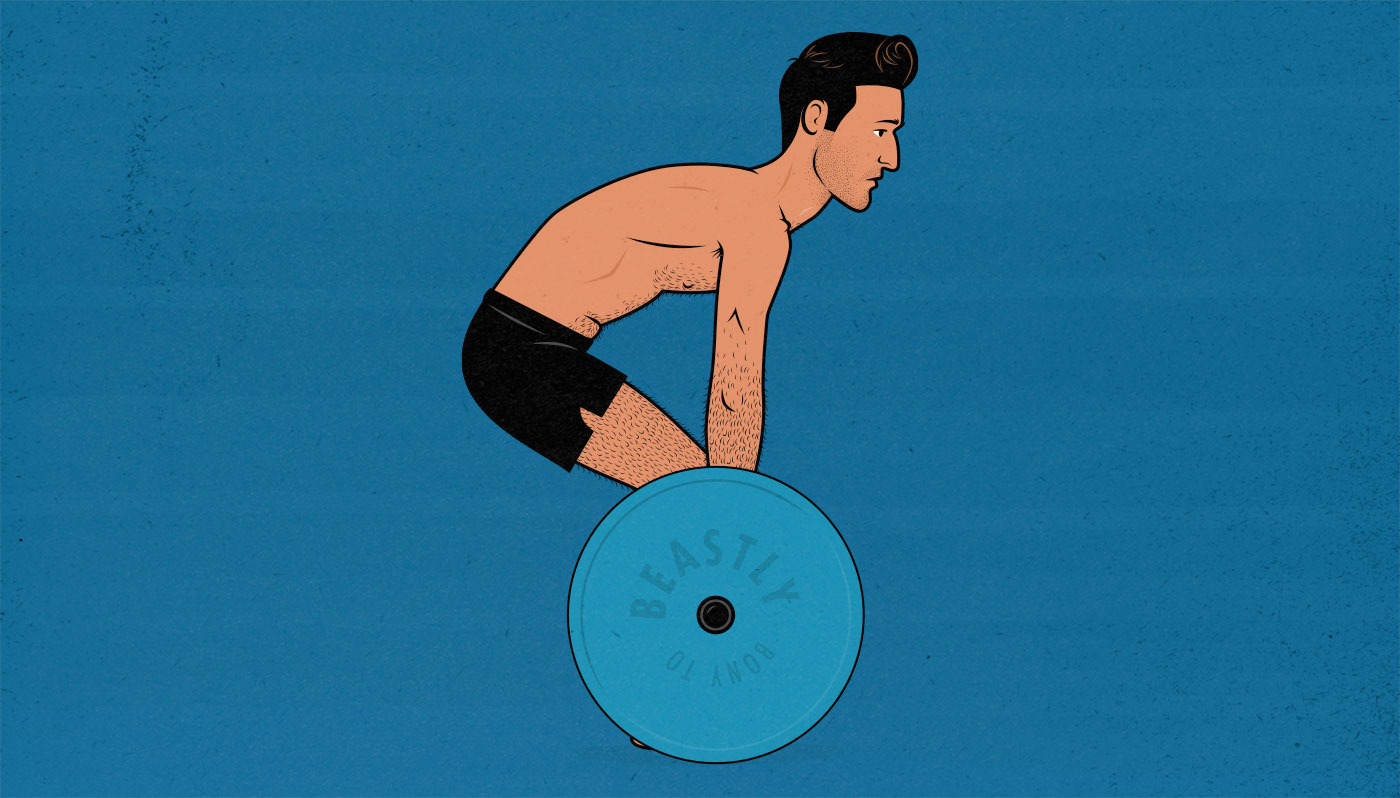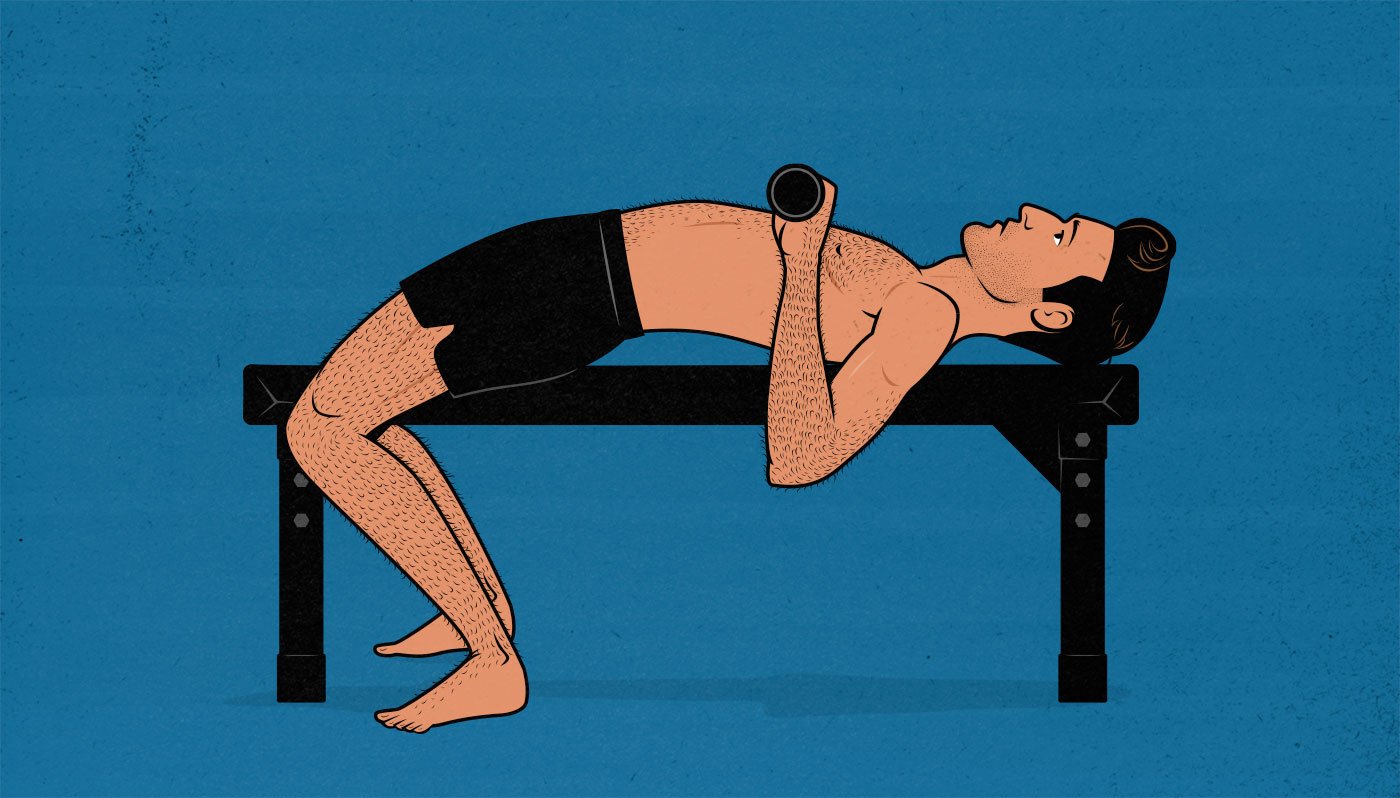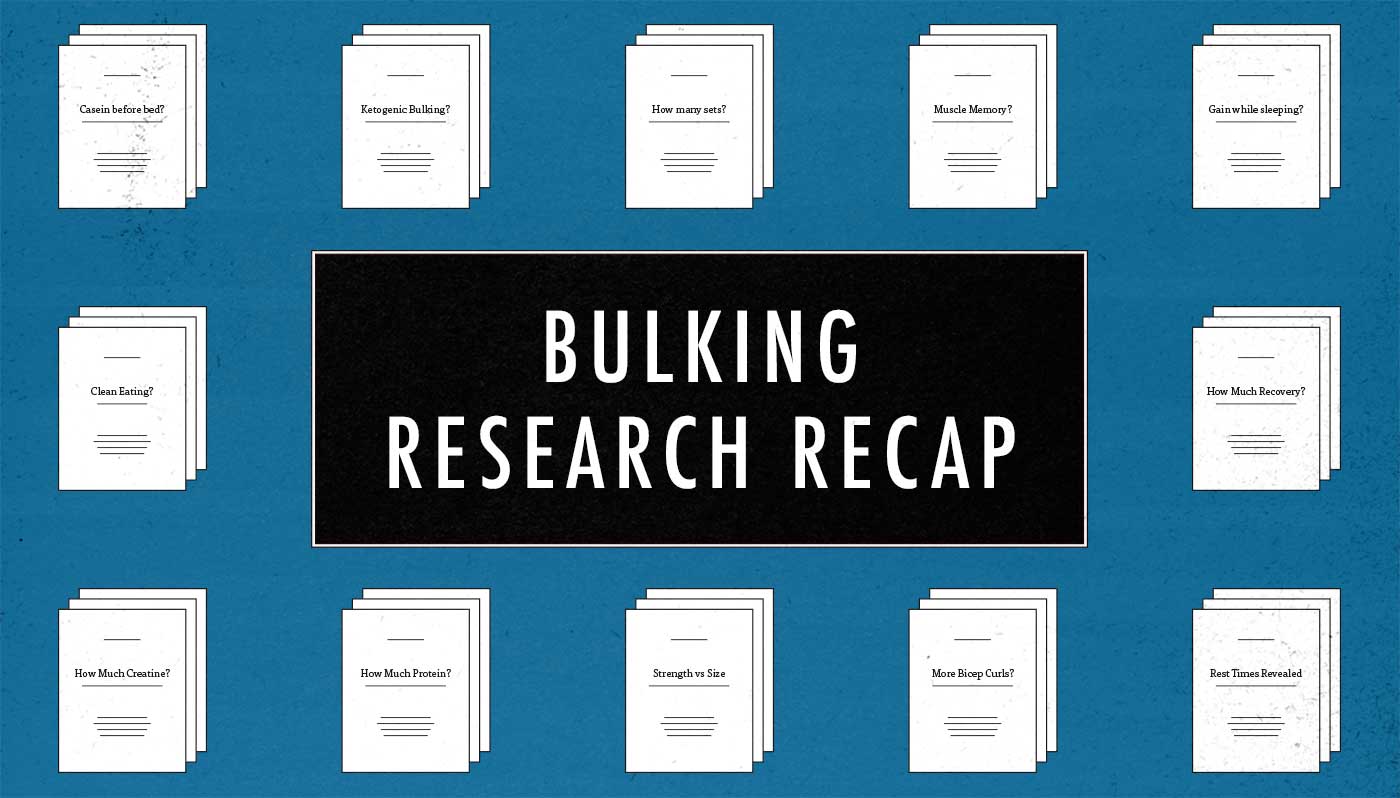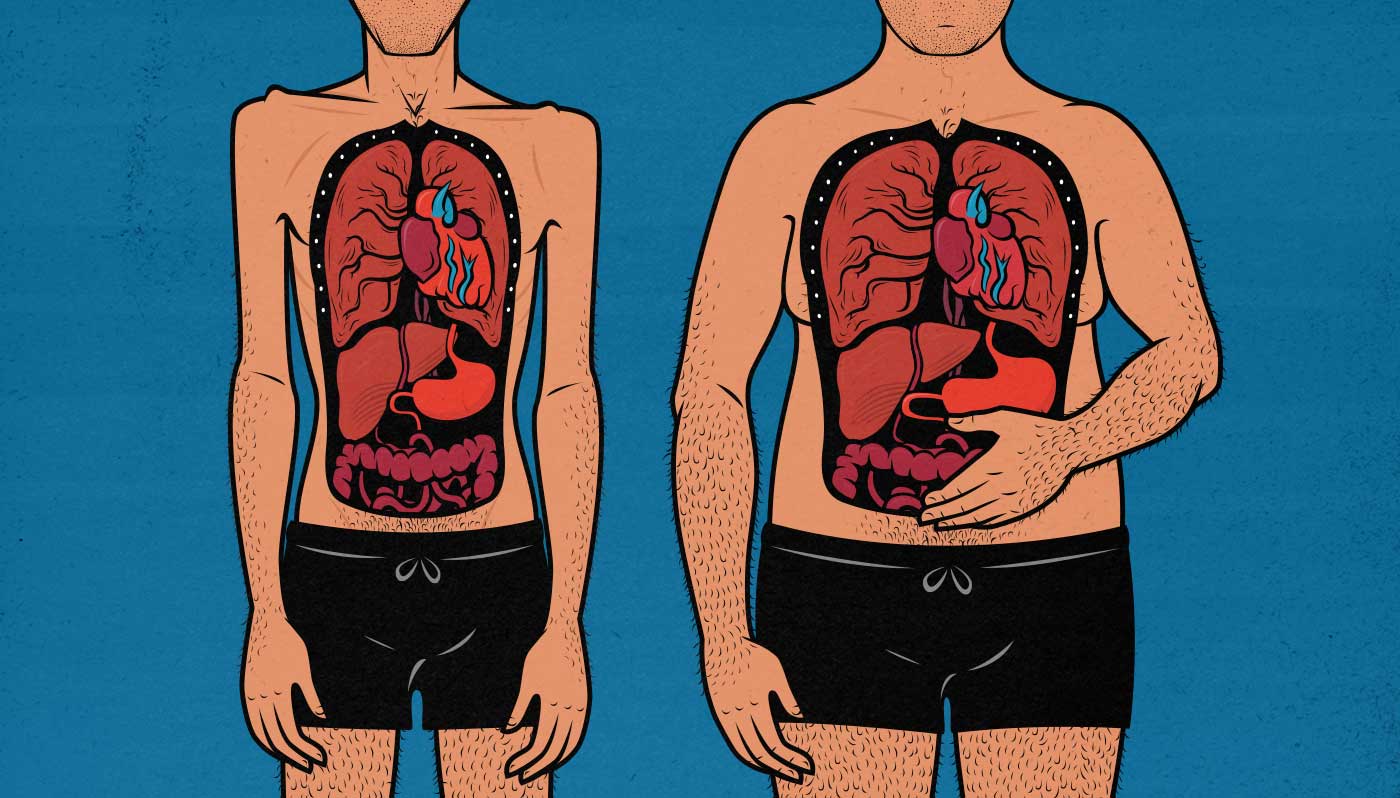Articles
Forearm Training: How to Build Bigger Forearms
When you first start lifting weights, it’s a good idea to focus most of your energy on the big compound lifts. Your workouts start with lifts like the squat, bench press, deadlift, chin-up, and row. These are the biggest lifts that build the most overall muscle mass. After that, we add in some isolation lifts. Curls for our biceps, extensions for our triceps, lateral raises for our shoulders, and maybe some exercises for our abs. These train the muscles that aren’t properly stimulated by the big compound lifts.
As you gain weight, build muscle, and get stronger at these lifts, you’ll probably notice that your grip is getting stronger, and your forearms are getting bigger. This is because the rows are training your elbow flexors, the biceps curls are training your wrist flexors, and the lateral raises are training your wrist extensors. They aren’t the main muscles being worked, but since we’re new to lifting weights, they grow.
The thing is, as you continue getting bigger and stronger, you’ll probably notice that your forearms stop growing. That’s because your forearm muscles have gotten both stronger and tougher, and these compound lifts aren’t challenging them enough to provoke any growth.
So how do we get bigger forearms? We train them directly. Here’s how.
Read MoreHow to Do a Lean Bulk
One of the most common bulking problems is gaining too much fat. For someone already muscular, gaining some fat makes them look beefy. Not a big deal. But for someone still fairly thin, it can make us look skinny fat. Better to do a lean bulk, right?
When you look up how to do a lean bulk, you’ll be told to gain weight very slowly—just a pound or so per month. You might hear about how you need to restrict certain foods or eat a cleaner diet. In some circumstances, that can help.
A better way to build muscle leanly is to stimulate more muscle growth. The more muscle growth you can stimulate, the more calories will be invested in lean mass, leaving fewer to spill over into fat storage. This is especially powerful for us skinny guys, given how quickly we can build muscle.
In this article, we’ll cover why people gain fat while bulking, how to gain muscle faster, how to minimize fat storage, and how to do a proper lean bulk.
Read MoreThe Skinny Guy’s Guide to Building a Hollywood Physique
In this article, I want to talk about realistic physique goals, both in terms of understanding the timeframe that it takes to build muscle, as well as how good you can expect to look by the end of it. Perhaps it’s our audience, being largely made up of skinny guys who actively seek out information, but we tend to see things differently than a lot of other fitness professionals.
Can you look like the sex icon from the latest Hollywood movie? Well, you can’t transform your face, and building muscle won’t automatically make you more charismatic, but can you have physique of Brad Pitt from Fight Club, Christian Bale in American Psycho, Will Smith in I Am Legend, Gerard Butler in 300, or Daniel Craig in James Bond? Yes, you probably can.
None of those actors have great muscle-building genetics. All of them are naturally skinny—so-called ectomorphs. Some of them are naturally lean, yes, but so are many of us. And believe it or not, most of them didn’t even routinely lift weights until a few months before shooting for those films. These aren’t just realistic physiques, these are physiques you can probably build with just a few months of dedicated weight training.
I realize this might sound crazy, but hear me out.
Read MoreHow to Know if You’re Skinny
How can you know if you’re skinny? There are a couple different ways. One definition for skinny is being underweight, so we can calculate your BMI. Another definition for skinny is having small muscles and lanky limbs, so we can look at your body-part measurements to see if you have smaller muscles than the average man.
That gives us two tests:
- Are you underweight?
- Are your muscles smaller than the average man’s?
In either case, we can then help you bulk up so that you’ve got a healthy bodyweight and muscles that look strong because they are strong.
Read MoreShould Beginners Lift to Muscle Failure?
As a new lifter trying to gain muscle size, how close to failure should you be lifting? Some argue that beginners should stop shy of failure, leaving a few reps in reserve (RIR). There’s some wisdom to that advice. It allows beginners to better practice their technique, reducing the risk of injury.
Others argue that beginners should take their sets all the way to muscular failure, ensuring they’re pushing themselves hard enough to stimulate a maximal amount of muscle growth with every set. But does taking a set all the way to failure actually stimulate more muscle growth? Let’s take a look at the research.
Finally, not every lift is the same. Some suit training to failure better than others. So, it’s not as simple as saying that a beginner should always train to failure or avoid training to failure. It often depends on the specific lift.
Read MoreEctomorph Workout Plan: Beginner Weight Training Routine
Skinny guys are often called “ectomorphs.” It’s a slang term referring to our thinner bones, narrower frames, shallower ribcages, or lankier limbs. Does being naturally thinner affect how we should exercise, lift weights, and build muscle?
Many of us ectomorphs also have atypical goals. Most people want to lose weight, we want to gain it. Most people intuitively eat too much food, we eat too little. We’re usually eager to bulk up, and we often have a hard time of it. Some may even worry they’ve got bad muscle-building genetics. Does that change how we should train?
Different workout programs are designed for people with different goals. Some, like CrossFit, are designed to improve our general fitness. Others, like Starting Strength and StrongLifts 5×5, are designed to improve our general strength. Still others, such as bodybuilding, seem entirely centred around helping naturally muscular guys gain even more muscle. What’s the best way to work out if we’re trying to gain muscle size?
So, how should ectomorphs work out?
Dive InProtected: Weight Lifting Calorie Calculator
A Review of Interesting Muscle-Building Research for Skinny Guys
In this article, let’s take a closer look at some of the most interesting research that could help us ectomorphs, hardgainers, and skinny guys bulk up, including studies looking into:
- How important are bicep curls for building bigger arms?
- Does muscle memory really exist?
- How long should we rest between sets?
- Does doing more sets increase muscle growth?
- What happens if we bulk on a ketogenic diet?
- Are high-protein diets healthy?
- Does having casein for bed help with muscle growth?
- Are 5×5 workouts good for building muscle?
- Are 10×10 German Volume Training workouts good for building muscle?
- Are push/pull/legs splits good for building muscle?
- Which lifestyle intervention caused simultaneous muscle growth and fat loss?
All of those answers and more inside.
Read MoreHardgainers: Why Is It So Hard for Skinny Guys to Gain Weight?
It’s common for skinny “hardgainers” to have trouble gaining weight. We’re in the midst of an obesity epidemic, surrounded by people who gain weight by accident, and yet no matter what we do, we can’t budge the scale.
“Just eat more.” I know. I’ve heard it, too. That advice isn’t wrong, but it’s hard to eat more when we’re fighting against faster metabolisms, smaller stomachs, and humbler appetites. Sometimes when we eat more food, our metabolisms get faster, gobbling up the extra calories, preventing us from gaining weight. We’ll explain all of that.
There are proven methods that can help us gain weight. We’ve helped tens of thousands of skinny guys bulk up. We’ve done it ourselves. We’ll teach you how to do it, too.
There are advantages to being a hardgainer. Once you learn how to take advantage of your body type, you may be able to build muscle faster and more leanly than the average person.
Read MoreIs Bulking Healthy? Can We Make it Healthier?
Different people bulk in different ways, and so depending on how we approach it, it can be either good or bad for our general health. However, as a general rule, bulking involves habitual weight training, eating a lot of whole food, eating plenty of protein, getting an abundance of good sleep, and gaining muscle mass, all of which are incredibly healthy.
One of the main reasons that Marco and I are so passionate about helping skinny guys bulk up is because we’re so confident that it can profoundly improve your health, as it did for the two of us.
Still, there are some things to watch out for, as well as some things we can do to make bulking even healthier, so let’s go into more detail about how we can bulk up in a way that’s good for our general health.
Read More
